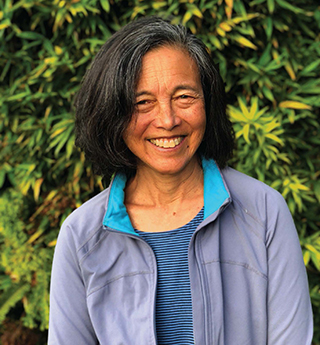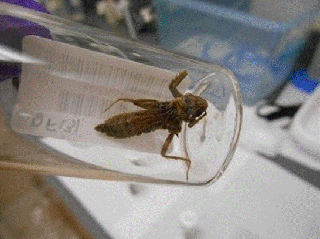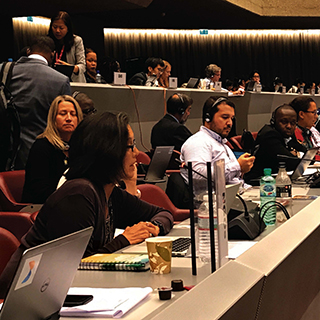
Internationally recognized researcher and long-time NIEHS grantee Celia Chen, Ph.D., Dartmouth College, studies how pollutants accumulate in freshwater and marine food webs where they can pose a threat to human health.
“I grew up in a very industrialized area in New Jersey,” Chen explained. “I remember noticing the pollution as a child and being interested in understanding it better. Later, things really came full circle when I ended up doing research at the very Superfund site my family drove by regularly to go shopping.”
Today, Chen co-leads a project collaborating with the New Hampshire Department of Environmental Services and Clarkson University to assess the presence of per-and polyfluoroalkyl substances (PFAS) in fish and shellfish in the Gulf of Maine. By integrating this data with information on local seafood eating habits, the team aims to inform health protective policies for PFAS.
According to Chen, this project builds on nearly three decades of research through the NIEHS-funded Dartmouth College Superfund Research Program (SRP) Center.

"What I love about science is that it is this series of connections and collaborations with diverse groups that open up new questions and opportunities to address them," she explained. “Having the right team was critical to being able to quickly pivot to address emerging questions. We’ve leveraged our work on mercury as part of the Dartmouth SRP Center to start thinking conceptually about PFAS, because the questions surrounding PFAS now are very similar to questions we had about mercury many years ago.”
Scaling Research from Local to Global
Through the center’s community engagement and research translation activities, Chen’s research on mercury connects varied groups worldwide, from high school students, to communities, and governmental decision makers.
For example, she described the Dragonfly Mercury Project, which began as a high school curriculum and grew into a successful national initiative.

“My collaborator at the University of Maine started the project over 10 years ago to teach high schoolers about how mercury moves and changes in the environment,” Chen said. “The Dartmouth SRP Center took it on and expanded it in schools in New Hampshire and Vermont. Now it has been adapted into a project led by the National Parks Service and the U.S. Geological Survey.”
Analyzing samples collected by community scientists, including by high school students in New England, demonstrated that dragonflies can be used as a simple and effective indicator of mercury contamination in fish and other wildlife.
Chen explained that this local data on mercury can inform the larger picture.
“Mercury can be a local problem where there are coal fired plants or small gold mines, but it can be transported around the world in the atmosphere as far as the Arctic,” said Chen. “Mercury and other persistent organic pollutants require that global partnerships come up with solutions that everyone can agree on.”
Working with collaborators across the globe, Chen helped produce four papers for a special issue of the journal, Ambio. Their goal was to describe the latest research on mercury, laying the foundation for how this science can help inform environmental policy, particularly activities under the Minamata Convention, a global treaty on mercury that was ratified in 2017. Chen and collaborators are repeating this exercise through an NIEHS-funded workshop to develop another series of papers to inform future discussions surrounding the treaty.
Understanding Exposures
Chen and team are also clarifying how environmental changes associated with climate may affect mercury exposure for humans. For example, they reported that when water temperatures rise, fish eat more and absorb higher levels of mercury.
“Findings on mercury show that with warming waters, humans may be exposed to higher levels of metals from eating fish,” she said.
Based on those experimental and field studies, Chen and team will next explore how factors like organic carbon, affected by changes in precipitation patterns , may alter how PFAS move in the food web.
Celia Chen

